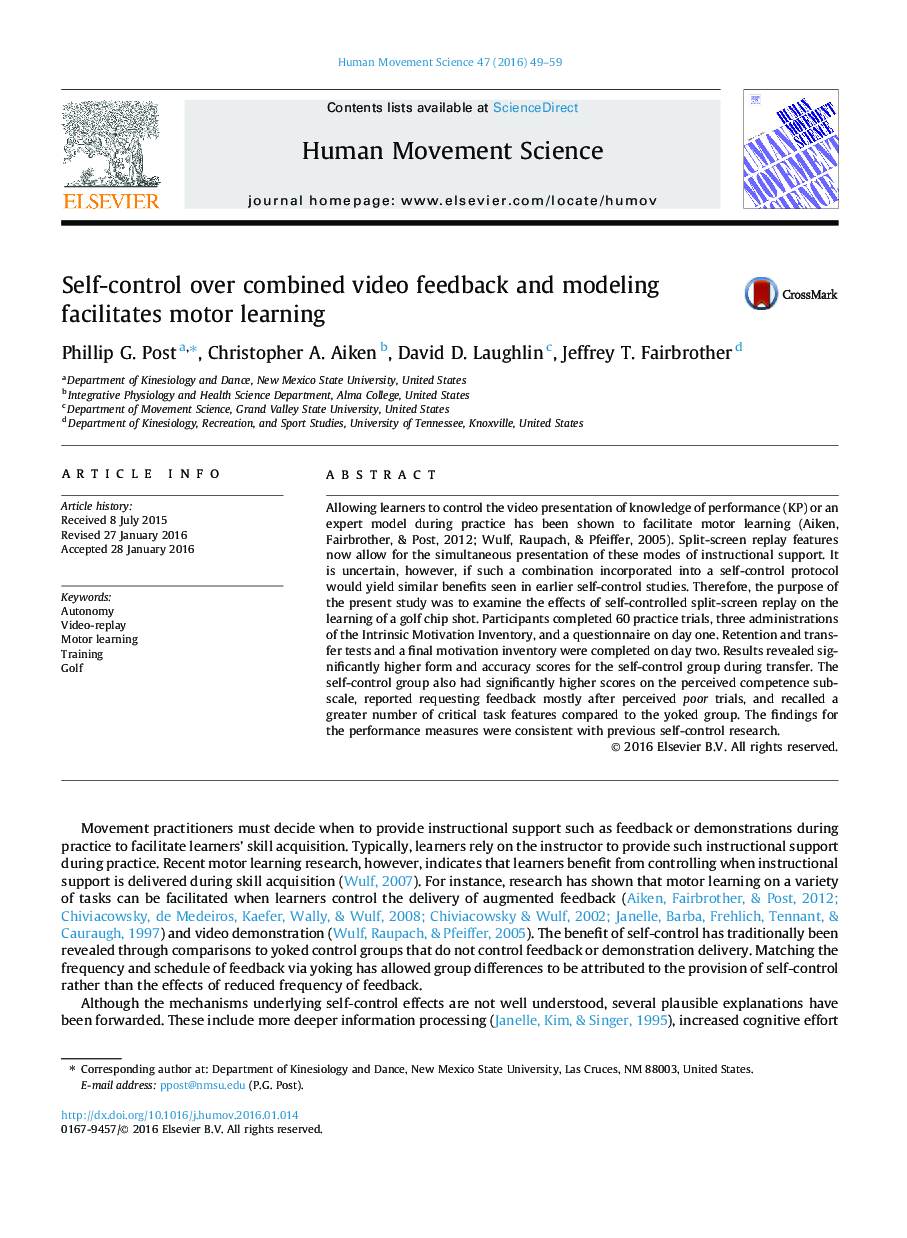| Article ID | Journal | Published Year | Pages | File Type |
|---|---|---|---|---|
| 7291419 | Human Movement Science | 2016 | 11 Pages |
Abstract
Allowing learners to control the video presentation of knowledge of performance (KP) or an expert model during practice has been shown to facilitate motor learning (Aiken, Fairbrother, & Post, 2012; Wulf, Raupach, & Pfeiffer, 2005). Split-screen replay features now allow for the simultaneous presentation of these modes of instructional support. It is uncertain, however, if such a combination incorporated into a self-control protocol would yield similar benefits seen in earlier self-control studies. Therefore, the purpose of the present study was to examine the effects of self-controlled split-screen replay on the learning of a golf chip shot. Participants completed 60 practice trials, three administrations of the Intrinsic Motivation Inventory, and a questionnaire on day one. Retention and transfer tests and a final motivation inventory were completed on day two. Results revealed significantly higher form and accuracy scores for the self-control group during transfer. The self-control group also had significantly higher scores on the perceived competence subscale, reported requesting feedback mostly after perceived poor trials, and recalled a greater number of critical task features compared to the yoked group. The findings for the performance measures were consistent with previous self-control research.
Keywords
Related Topics
Life Sciences
Neuroscience
Cognitive Neuroscience
Authors
Phillip G. Post, Christopher A. Aiken, David D. Laughlin, Jeffrey T. Fairbrother,
